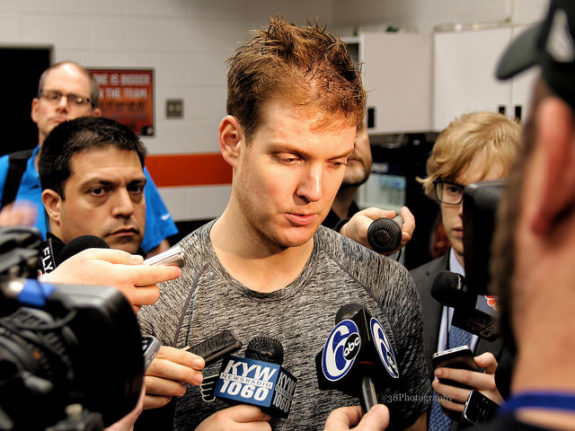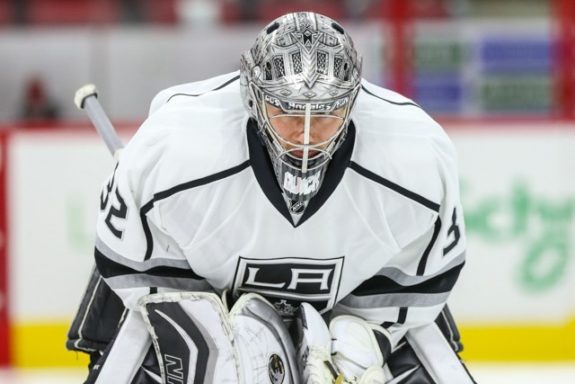The first round has ended. Two series went the distance and three only lasted five games. In almost every series, the better goaltending won the day. The only cases were when the first choice netminder was replaced halfway through. Let’s take a look at the three worst goalies from the first round of the 2016 Stanley Cup Playoffs.
Goalies Lagging Behind
Not every game will be something goalies write home about. In the first round, these goalies didn’t write much of anything positive.
Steve Mason
Whether he was fatigued from carrying his Flyers all the way to playoffs or just was unable to handle the high-powered Capitals, Steve Mason played poorly. He was replaced by Michal Neuvirth who nearly dragged the Flyers to a seventh game. Mason earned the worst low-danger save percentage (ES) as well, 89.47% was four points worse than the next netminder. His adjusted save percentage was 16th among the 22 goalies. While at the same time, his three games also produced the best defensive performance from his team. He only faced 21.57 shots per 60 minutes, second lowest. In spite of that, Mason, while heroic in the final weeks, just failed to rise to the already lofty expectations of holding off the Caps.

Jimmy Howard
The Red Wings were in trouble before the playoffs even started. They were the only team with a negative goal differential to qualify. But their goalies were no spring chickens themselves. Jimmy Howard was the hot hand coming in, but his 2 games in the net were forgettable at best. Howard gave up 7 goals and 6 of them were at even strength. He posted the fourth worst save percentage with an 88.0%. And of course, he lost his job to Petr Mrazek. His replacement was unable to salvage the series and they lost in five, but Mrazek only allowed four goals in three games and only one was at even strength.
Jonathan Quick

Perhaps it’s the memories we’ve accumulated with Jonathan Quick in the playoffs, but the Kings’ goaltender was disappointing in the Sharks’ drubbing of their division rivals. He gave up 10 goals at even strength and another 5 to San Jose’s dangerous power play. Quick wasn’t under an intense amount of pressure, either. Out of 22 qualifying goalies, he ranked 17th. However, the most damning piece of evidence came in the series clinching Game 5. The Kings had stormed back to tie but a tough bounce put them behind. But it was only one goal. Until 3:18 of this video:
Quick needs to have this shot. It breaks the back of his club and you can almost hear the air escape from Staples Center. While Pavelski is an elite shooter, this is a common save that all professional goalies have to be able to make. And the play encapsulates the series. These Kings were not as talented as previous championship iterations were. And neither was their superstar goaltender.
A Different Animal
The playoffs are a dangerous beast. The best players get chewed up and spit out. All of these goalies are incredible leaders that brought their clubs to the postseason. Some were given incredibly tough assignments and the stats look bad as a result. And, of course, this is a small sample size and the stats can be deceiving. Nonetheless, the performance reviews are in and these goalies received “In Need of Improvement.” For their teams to advance further, the soft goals can’t happen and they need to provide that big save that swings momentum.